Translated by Ismaeel Nakhuda
(Translator’s Introduction: We live in challenging times with incessant efforts underway to muddy and cloud the track of the scholars of Deoband. Their efforts in preserving and transmitting the sacred sciences in an authentic and robust fashion are recognised by many, especially the general masses. The result has been that the Salafis, for instance, have largely failed to penetrate communities where the scholars of Deoband are followed. However, a new modus-operandi is being employed to further the Salafi agenda which involves muddying and clouding not just the Hanafi school, but also the way of Deoband so as to create an ideological space for the Salafis to operate in.
The scholars of Deoband have staved off similar efforts in the past. It was in relation to this that Mawlana Khalil Ahmad Saharanpuri penned his brilliant Al-Muhannad ‘ala al-Mufannad and Mawlana Qari Muhammad Tayyab authored his fantastic ‘Ulama-i-Deoband ka Dini Rukh awr Maslaki Mizaj. The centrality of these two books—in addition to the suhbah of true shaykhs—in explaining and understanding the temperament of the scholars of Deoband cannot be underestimated. Below is a translation of Mufti Taqi Usmani’s excellent foreword to the second of the above-mentioned books in which he outlines, among other issues, that the way of Deoband embodies the Qur’an and Sunnah in an uninterrupted chain returning to the Prophet. He also writes about the moderate disposition of the scholars of Deoband, the catalyst that prompted Qari Muhammad Tayyab to clarify their track and why Qari Muhammad Tayyab [1]Qari Muhammad Tayyab (1897-1983)—often referred to as Hakim al-Islam (Islam’s Physician)—was the rector (muhtamim) of Dar al-‘Ulum Deoband, khalifah of Hakim al-Ummah Mawlana Ashraf ‘Ali … Continue reading is an able authority for such an undertaking. Mufti Muhammad Taqi Usmani writes:)
In the name of Allah, the Most Compassionate, the Most Merciful.
All praise is for Allah and that is enough, and Peace on His slaves who He selected.
There was, fundamentally, no great need to compile a book to explain and clarify the way (maslak) of the scholars of Deoband. This is because the scholars of Deoband are not a sect or group that has moved away from the majority of the Ummah and derived a separate ideology and set of actions. Rather, the way of explaining and defining Islam which has been that of the majority of scholars for over 1400 years is the way of the scholars of Deoband. The fundamental fountainhead of the religion and its teachings are the Qur’an and Sunnah, and all of the teachings of the Qur’an and Sunnah, in an all-encompassing way, are the foundation of the way of the scholars of Deoband.
Select and look at any of the reliable books on the beliefs (‘aqidah) of the Ahl al-Sunnah wa al-Jama‘ah, whatever is written in them is the belief of the scholars of Deoband. Study any of the reliable books of Hanafi jurisprudence (fiqh) and principles of jurisprudence (usul al-fiqh)—all of the rulings and principles contained therein are the way of jurisprudence of the scholars of Deoband. Refer to any of the reliable and accepted books on manners and ihsan—they are the Deoband scholars’ source in relation to the purification of manners (tazkiyah-i-akhlaq) and ihsan. From the noble Prophets (peace be upon them) and the Companions and Followers until the walis of the Ummah and the pious, those individuals whose lofty rank and whose academic and pious actions the majority of the Ummah is agreed on are, in the view of the scholars of Deoband, those very personalities who are exemplars and worthy of being followed.
In short, there is no aspect of the religion in which the scholars of Deoband have differed by even a hair from Islam’s popular and transmitted explanation and its accurate temperament and attitude. It is because of this that there is, essentially, no need for a separate book to explain and clarify their way. If their way needs to be known, then that is mentioned with detail in the reliable books on the exegesis (tafsir) of the Qur’an, the accepted commentaries of hadith, in [the books of] Hanafi jurisprudence, in writings on creed and kalam, and the books of Tasawwuf and manners that are reliable and authentic according to the majority of the scholars of the Ummah. However, in this recent era there have been two causes on account of which the necessity has been felt for the way and disposition and religious temperament and attitude (dini mizaj wa mazaq) of the scholars of Deoband to be clarified in the form of a separate book.
The first cause is that Islam is a religion of moderation (i‘tidal). The Noble Qur’an has, by describing the Muslim Ummah as the “moderate Ummah” (2:143), announced that one of the fundamental specialties of this Ummah is moderation and balance, and because the scholars of Deoband are the carriers of this religion then this moderation has naturally completely penetrated their way and disposition and temperament and attitude. Their way passes past extremism [on the one hand] and laxity [on the other] in a way that even the hem of their attire does not become entangled with these two extremes; it is the peculiar characteristic of moderates that those extreme and those lax, both of them, reprimand them. Those on the extreme accuse them of being lax and those lax accuse them of being extreme.
It is because of this that in opposition to the scholars of Deoband, contradictory propaganda has come from those of extreme views. For example, the moderation of the scholars of Deoband is such that in addition to having complete faith in the Qur’an and the Sunnah, they also venture forward with trust in the Pious Predecessors and in following them. For them, in the explanation and commentary of the Qur’an and the Sunnah, the explanations of the Pious Predecessors and their actions enjoy a central importance and they consider having firm faith and love for them an important part of their way and disposition. However, on the other side, they do not allow this faith and love to reach the level of worship and personality worship. Rather, the principles of differences in ranks always remain at the forefront.
Now, there are those who claim to bring faith and act on the Qur’an and Sunnah, but are not, in their explanation and commentary, prepared to give the Pious Predecessors a central position, but rather consider their own mind and intellect sufficient in explaining the Qur’an and Sunnah. These individuals direct the accusation of personality worship against the scholars of Deoband and forward the propaganda that they—we seek refuge with Allah—have made their Predecessors objects of worship (ma‘bud). On the other side, those who have actually taken the love and faith for the Predecessors up to the level of personality worship level the accusation against the scholars of Deoband that in their hearts there is no love and reverence for the Predecessors or that they are guilty of—we seek refuge with Allah—denigrating these worthy individuals of Islam. As a result of both of these types of contradictory propaganda, a person who is not fully aware of the actual reality could become the target of misunderstanding the way and disposition of the scholars of Deoband. It is because of this that for some time the need was felt that the moderate way of the scholars of Deoband is explained positively and comprehensively in a way that an impartial individual would be able to properly understand their stance.
The second cause is that the way of the scholars of Deoband in actuality is the name of that way in ideology and action that the founders and authentic elders (akabir) of Dar al-‘Ulum Deoband acquired from their shaykhs in a connected chain (sanad) and which is connected through the Companions and Followers to the Prophet (ﷺ). This was an authentic manner in thought and belief, an exemplary system in actions and manners and a moderate temperament and attitude which cannot be acquired by just reading a book or gaining a sanad, rather it can be accurately acquired by remaining in the company of those respected individuals who have been absorbed in this temperament in the way that the Companions acquired from the Prophet (ﷺ), the Followers from the Companions, and authentic students from the Followers.
On the other side, Dar al-‘Ulum Deoband, towards which this way (maslak) is generally attributed, is an institute of learning that has been serving the teaching of Islamic sciences for over one hundred years. During this time, it is not surprising that its graduates number in the hundreds of thousands. Aside from that, later on within the Sub-Continent thousands of such religious schools have been established that consider Dar al-‘Ulum Deoband to be their spiritual fountainhead and attribute themselves to it, and their graduates are also generally called scholars of Deoband (‘ulama-i-Deoband).
It is clear that it cannot be said that each and every individual from the thousands who graduate from these institutes is the correct embodiment of the way of the scholars of Deoband. Any regular institute of learning which adheres to a special curriculum and syllabus or system and policy can only serve the individuals studying there and can only oversee them to an extent that the adopted rules and regulation permit. However, it cannot completely supervise each and every student over the views that are being nurtured in his mind and which direction he is thinking of proceeding in. After the connection with the institute ends, there is precisely no possibility of any of this type of supervision. As a result, such individuals have come from these institutes and entered the field who are, in terms of education, without a doubt affiliated to Dar al-‘Ulum Deoband. However, they have not had the opportunity of properly acquiring the way and disposition of the senior (akabir) scholars of Deoband or their inherited temperament and attitude which cannot only be acquired through books. In this way, they are not the embodiment of the way of the scholars of Deoband. However, on the basis of their affiliation to Dar al-‘Ulum Deoband or one if its spiritual institutes, some people have assumed they are the embodiment of the way of the scholars of Deoband and have begun attributing all of their words to the scholars of Deoband.
Among them were some individuals who not only refuted and opposed some of the beliefs and thoughts of the scholars of Deoband but rather declared them to be deviant, and in spite of that consider themselves the embodiment of the way of the scholars of Deoband. Some individuals have begun to attribute their personal opinions to the scholars of Deoband. Some have taken a single aspect of the comprehensive and moderate framework of the way of the scholars of Deoband and introduced this aspect as being that of Deoband and undermined its other aspects. For example, some individuals, having seen that the senior scholars of Deoband at times of need fulfilled the obligation of refuting false views with proofs, declared refutation to be the way of the scholars of Deoband and, through their actions, project the view that the way of the scholars of Deoband is a negative movement in whose objectives the positive aspects of the faith have no special importance. Furthermore, in the refutation of false views, people of varying mindsets identified different fields to work in, which was fine to the extent of distributing the workload. However, some of the individuals exceeded the limit and gave the impression that the way of the scholars of Deoband is only limited to their field of action. Some individuals did opt for the principles of refuting false views. However, those principles that the senior scholars of Deoband followed in refutation, they did not turn to them as they so deserve and from the modus-operandi of some of these individuals the impression was given that the way of the scholars of Deoband—Allah forbid—is part of these sectarian individuals which can be observed spread out throughout the world and whose way is that they absolve and consider worthy of defending each error of individuals within their faction and each positive action of others is worthy of being washed away in the sea.
The reality is that the way of the scholars of Deoband is free of all these immoderations which have appeared in the public sphere through such individuals who are, according to the basis of education, affiliated to either Dar al-‘Ulum Deoband or one of its affiliated institutes. However, in terms of way, disposition, temperament and attitude, they are not the embodiment of the senior scholars of Deoband, nor have they acquired this temperament and attitude through that inherited method which is the correct method of acquiring it.
Even though—if history from the establishment of Dar al-‘Ulum Deoband until now were to be in front of us—the number of these types of immoderations have not been many, yet with the passing away of the senior scholars their number began to increase and unknown people began to attribute themselves to the way of the scholars of Deoband. It is because of this that the need began to be felt for the way and disposition, and temperament and attitude of the scholars of Deoband to be explained and ratified and codified in such a comprehensive way after which there can be no obscurity and ambiguity.
In this recent era, for this ratification and codification, there was without doubt no personality more apt than Hakim al-Islam Mawlana Qari Muhammad Tayyab (may He sanctify his secret). Not only had the respected Qari (may Allah have mercy on him) remained the rector of Dar al-‘Ulum Deoband for over half a century, he also directly acquired spiritual blessings (fayd) from those senior scholars of Deoband who were, undisputedly, the actual embodiment of the way of the scholars of Deoband. He not only had the blessing of being the student of pillars such as Shaykh al-Hind Mawlana Mahmud al-Hasan, Hakim al-Ummah Mawlana Ashraf ‘Ali Thanawi, Imam al-‘Asr ‘Allamah Sayyid Anwar Shah Kashmiri and Mufti-i-‘Azam Mawlana Mufti ‘Aziz al-Rahman, rather by remaining in their service and company for lengthy periods of time he implanted in his heart and mind the fragrance of their temperament and attitude. Regardless of whether someone may have had a difference of view with the mawlana on political or administrative issues, no two opinions are possible over the fact that he remained the authentic expositor of the way of the scholars of Deoband in this recent era.
As a result, due to the mentioned two causes, whenever a need was felt to explain and detail the way of the scholars of Deoband, eyes would turn towards Qari Muhammad Tayyab (may Allah have mercy on him). Sensing the need of the time, he penned and published several writings on this subject, the most detailed of which is considered to be the one published under the title Maslak-‘Ulama-i-Deoband. However, as the he has written himself in the introduction to this book, all of these writings were written in an implicit way in relation to other topics which were not directly a detailed exposition of the way of the scholars of Deoband; it is clear that in the mentioning of a subject in an implicit way, that level of clarity is not possible which can be achieved when the subject is directly written about. As a result, Qari Muhammad Tayyab (may Allah sanctify his secret), having sensed this need, compiled this detailed book in the last days of his life and which is in front of us. It is regretful that this book was not published during his lifetime. Perhaps those difficult tests that he (may Allah have mercy on him) passed during the last days of his life did not permit time for this invaluable treasure to reach the public domain and this book remained in draft form. Finally, members of his family found this valuable manuscript among his papers (may Allah have mercy on him) and granted permission to the beloved nephew of this lowly one, Mawlana Mahmud Ashraf ‘Uthmani (lecturer in hadith at Jami‘ah Ashrafiyyah, Lahore), to print and publish it, and in this way this treasure trove of wisdom and knowledge is being published by Idara Islamiyyat.
This lowly one has explained the background of this book. However, for this lowly and unworthy one to mention something in relation to the subject matter would be similar to holding a lamp in front of the sun. This perfume emanating musk-bag is now in front of you. Hence, there is no requirement for perfume seller’s introduction. In short, the sweet-smelling fragrance of the way and disposition and attitude and temperament of the senior scholars of Deoband which wafted out from the thought and actions of the scholars of Deoband was absorbed by the heart and mind of the Qari who gave it the form of words in this book, and he has in detail explained the thought and actions of the scholars of Deoband in a way that there remains no doubt and confusion in relation to this “… so that whoever is going to perish, may perish with a clear proof, and whoever is going to live, may live with a clear proof.” (Al-Anfal:42)
I do not wish to come in between you and the book by writing any further; no educated Muslim, especially a teacher or student of a religious madrasah, should be deprived from studying this book. In fact, the study or teaching of this book should be included within the syllabi of madrasahs. It is prayed that Allah Most High benefits Muslims by way of it as much as possible, and may it be a treasure in the hereafter for the author (may Allah have mercy on him), his family and the publishers, amin.
The Lowly,
Muhammad Taqi Usmani (may he be forgiven)
Servant, Dar al-‘Ulum Karachi
25 Shawwal, 1408 AH
| ↑1 | Qari Muhammad Tayyab (1897-1983)—often referred to as Hakim al-Islam (Islam’s Physician)—was the rector (muhtamim) of Dar al-‘Ulum Deoband, khalifah of Hakim al-Ummah Mawlana Ashraf ‘Ali Thanawi and grandson of Mawlana Qasim Nanotwi, qualifications that put him in good stead to outline and explain the track of Deoband. |
|---|

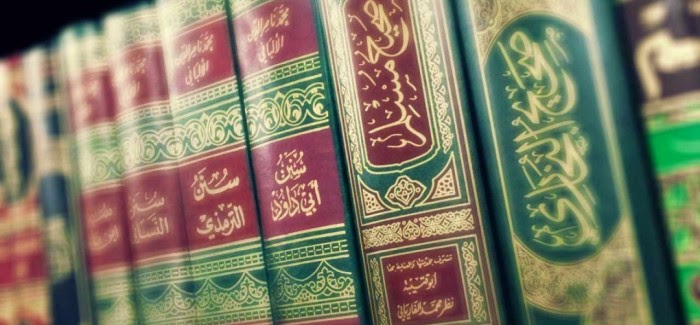
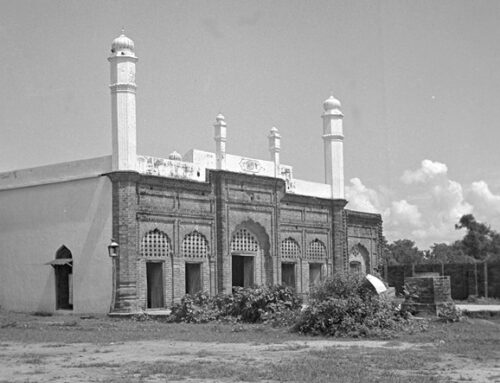
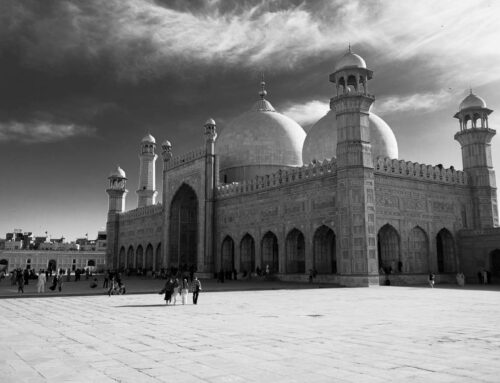
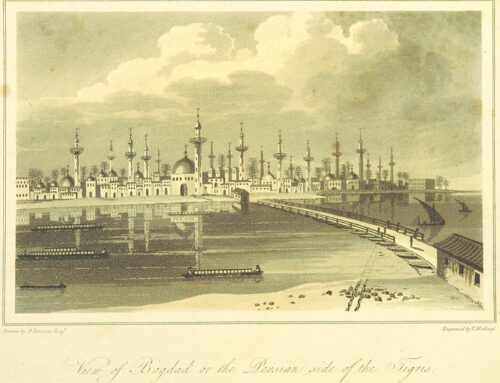
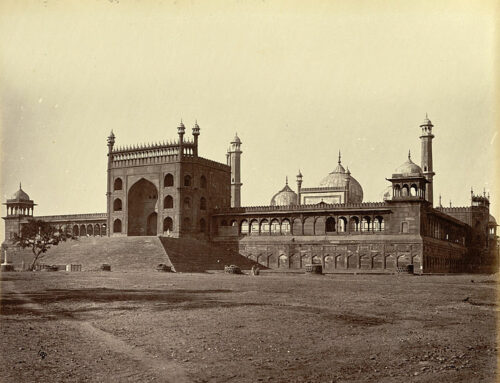
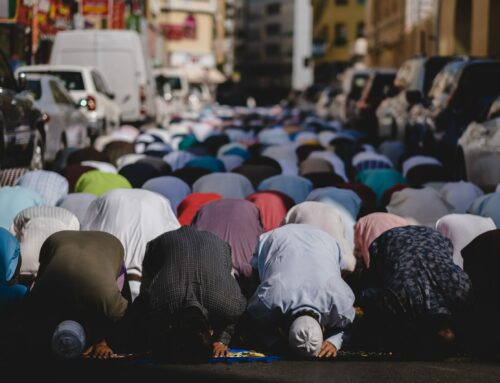
Ameen